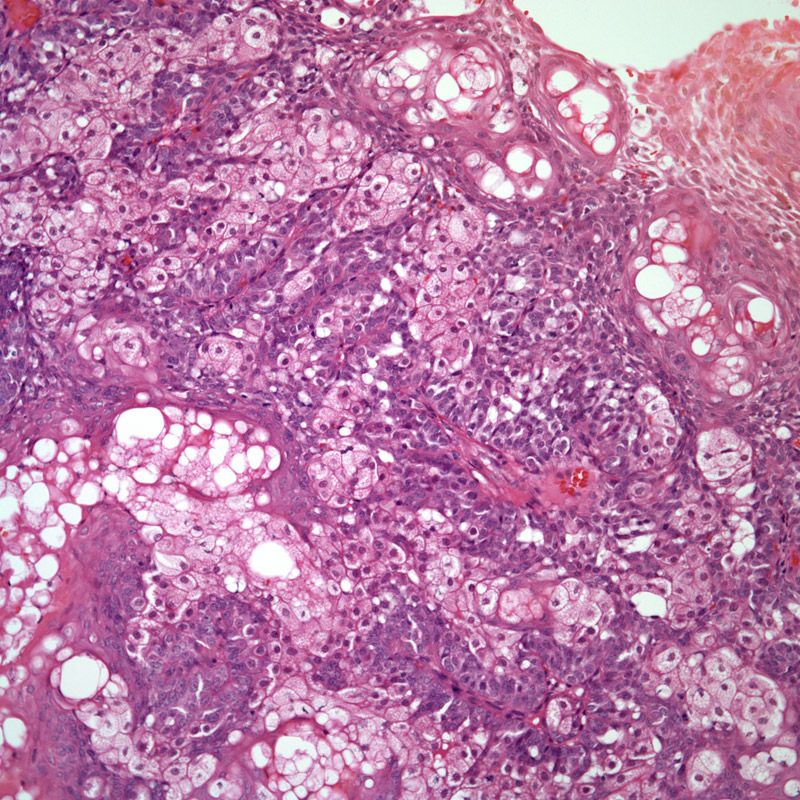VCN-01 Earns Rare FDA Pediatric Drug Status in Retinoblastoma
Phase 1 data may support the potential activity and safety of VCN-01 among pediatric patients with refractory retinoblastoma.
The FDA previously granted orphan drug designation to VCN-01 for retinoblastoma in February 2022.

The FDA has granted rare pediatric drug designation for VCN-01 as a treatment for pediatric patients with retinoblastoma, according to a press release from the developer, Theriva Biologics, Inc.1
The investigational oncolytic adenovirus is intended to selectively duplicate within tumor cells while degrading tumor stroma that resist anti-cancer therapy. The agent’s design may allow it to selectively infect and enable lysis of tumor cells, enhance the perfusion of supplementary chemotherapy, and augment tumor immunogenicity by exposing the disease to the patient’s immune system and supplementary immunotherapy.
“The FDA’s decision to grant rare pediatric drug designation to VCN-01 highlights the urgent need for new treatment options for pediatric patients with retinoblastoma. We are encouraged by this important step forward and, in parallel, continue to work closely with leading physicians and regulatory agencies to refine our clinical strategy for VCN-01 as an adjunct to chemotherapy in pediatric patients with advanced retinoblastoma,” Steven A. Shallcross, chief executive officer at Theriva Biologics, said in the press release.1 “Most recently, results from the investigator sponsored phase 1 trial [NCT03284268] evaluating the safety and activity of intravitreal VCN-01 in pediatric patients with refractory retinoblastoma were determined to be positive by the study monitoring committee. Data from this study will further inform our clinical development pathway in this area of high unmet need.”
Developers announced topline findings from the phase 1 trial assessing VCN-01 among a small cohort of pediatric patients with retinoblastoma in April 2024.2 Among 9 evaluable patients, intravitreal treatment with VCN-01 did not appear to affect retinal function while eliciting anti-tumor activity. Responses defined by unequivocal improvement in vitreous seed density occurred in 4 patients, and eye enucleation was averted in 3 patients at the time of the analysis.
Treatment-related adverse effects (TRAEs) with VCN-01 were generally grade 1 or 2. Investigators reported no dose-limiting toxicities, and no patients experienced ocular or systemic toxicities of grade 3 or higher.
Following treatment with VCN-01, investigators noted some ocular inflammation and related turbidity. The local and systemic use of anti-inflammatory agents helped with managing inflammation and some cases of vitreous haze.
“Results from the investigator sponsored trial further validate VCN-01’s unique mechanism of action and therapeutic potential to improve patient outcomes in otherwise refractory cancers,” Shallcross said in a press release on these findings.2 “The positive completion of this trial is an important step in refining our clinical strategy for VCN-01 as an adjunct to chemotherapy to address the high unmet need in this underserved indication.”
In this investigator-sponsored trial, patients received 2 doses of VCN-01 intravitreally at 2 weeks apart. Investigators administered study treatment at 2 x 109 vp per eye (n = 1) or 2 x 1010 vp per eye (n = 8).
The trial’s primary end point was the incidence of treatment-emergent AEs.3 Secondary end points included tumor response rate at 28 days following administration, virus presence in blood samples, and immune response.
Patients 1 to 12 years old with retinoblastoma harboring a somatic RB1 mutation and active tumor in a single eye or germinal RB1 mutation with active tumors in an eye with an unaffected contralateral eye were eligible for enrollment on the trial. Adequate renal, hepatic, and marrow reserve function were also required for study entry.
The FDA previously granted orphan drug designation to VCN-01 for retinoblastoma in February 2022.4 Additionally, the agency granted orphan drug designation to VCN-01 for pancreatic cancer in June 2023.5
References
- Theriva Biologics receives rare pediatric drug designation by the U.S. FDA for VCN-01 for the treatment of retinoblastoma. News release. Theriva Biologics, Inc. July 31, 2024. Accessed August 1, 2024. https://tinyurl.com/49fumwvn
- Theriva Biologics announces positive topline data from investigator sponsored phase 1 trial of intravitreal VCN-01 in pediatric patients with refractory retinoblastoma. News release. April 23, 2024. Accessed August 1, 2024. https://tinyurl.com/3yvbdx97
- Evaluate safety and the oncolitic adenovirus VCN-01 activity in patients with refractory retinoblastoma (RTB). ClinicalTrials.gov. Accessed August 1, 2024. https://tinyurl.com/52pa38ee
- Synthetic Biologics announces VCN Biosciences' VCN-01 receives orphan drug designation for retinoblastoma from the U.S. FDA. News release. Synthetic Biologics, Inc. February 8, 2022. Accessed August 1, 2024. https://tinyurl.com/yx97v4xx
- Theriva Biologics announces orphan drug designation granted by the U.S. FDA for VCN-01 for the treatment of pancreatic cancer. News release. Theriva Biologics, Inc. June 27, 2023. Accessed August 1, 2024. https://rb.gy/aanj7